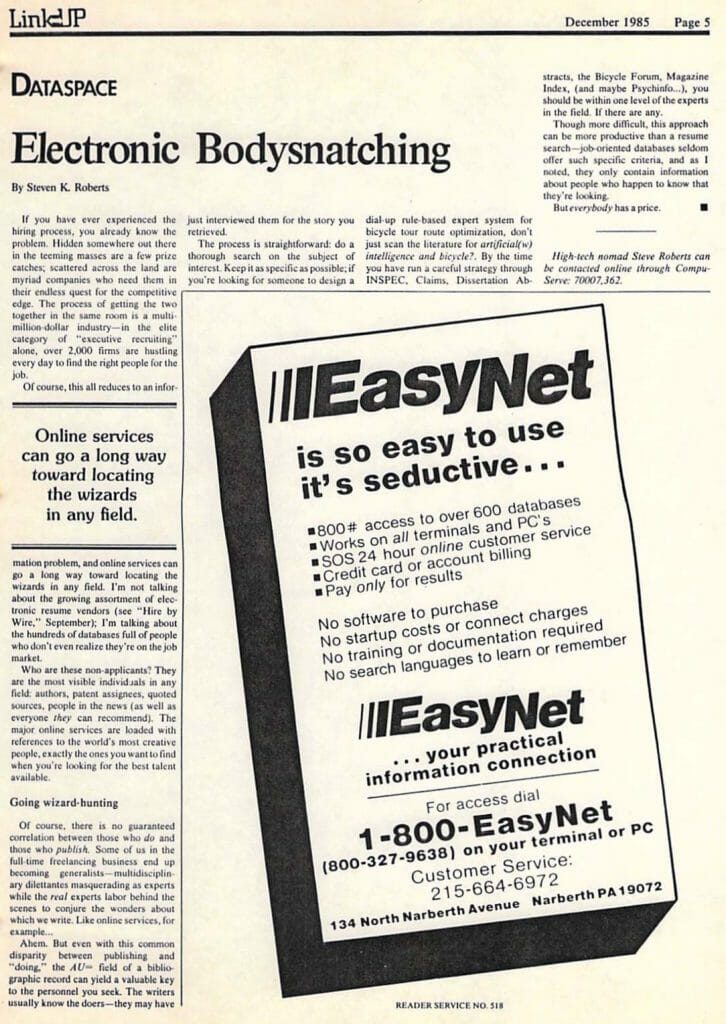
Electronic Bodysnatching
Dataspace
by Steven K. Roberts
Link-Up
December, 1985
If you have ever experienced the hiring process, you already know the problem. Hidden somewhere out there in the teeming masses are a few prize catches; scattered across the land are myriad companies who need them in their endless quest for the competitive edge. The process of getting the two together in the same room is a multi-million dollar industry—in the elite category of “executive recruiting” alone, over 2,000 firms are hustling every day to find the right people for the job.
Of course, this all reduces to an information problem, and online services can go a long way toward locating the wizards in any field. I’m not talking about the growing assortment of electronic resume vendors (see “Hire by Wire,” September); I’m talking about the hundreds of databases full of people who don’t even realize they’re on the job market.
Who are these non-applicants? They are the most visible individuals in any field: authors, patent assignees, quoted sources, people in the news (as well as everyone they can recommend). The major online services are loaded with references to the world’s most creative people, exactly the ones you want to find when you’re looking for the best talent available.
Going wizard-hunting
Of course, there is no guaranteed correlation between those who do and those who publish. Some of us in the full-time freelancing business end up becoming generalists — multidisciplinary dilettantes masquerading as experts while the real experts labor behind the scenes to conjure the wonders about which we write. Like online services, for example…
Ahem. But even with this common disparity between publishing and “doing,” the AU= field of a bibliographic record can yield a valuable key to the personnel you seek. The writers usually know the doers—they may have just interviewed them for the story you retrieved.
The process is straightforward: do a thorough search on the subject of interest. Keep it as specific as possible; if you’re looking for someone to design a dial-up rule-based expert system for bicycle tour route optimization, don’t just scan the literature for artificial(w)intelligence and bicycle?. By the time you have run a careful strategy through INSPEC, Claims, Dissertation Abstracts, the Bicycle Forum, Magazine Index, (and maybe Psychinfo…), you should be within one level of the experts in the field. If there are any.
Though more difficult, this approach can be more productive than a resume search — job-oriented databases seldom offer such specific criteria, and as I noted, they only contain information about people who happen to know that they’re looking.
But everybody has a price.
High-tech nomad Steve Roberts can be contacted online through CompuServe.

